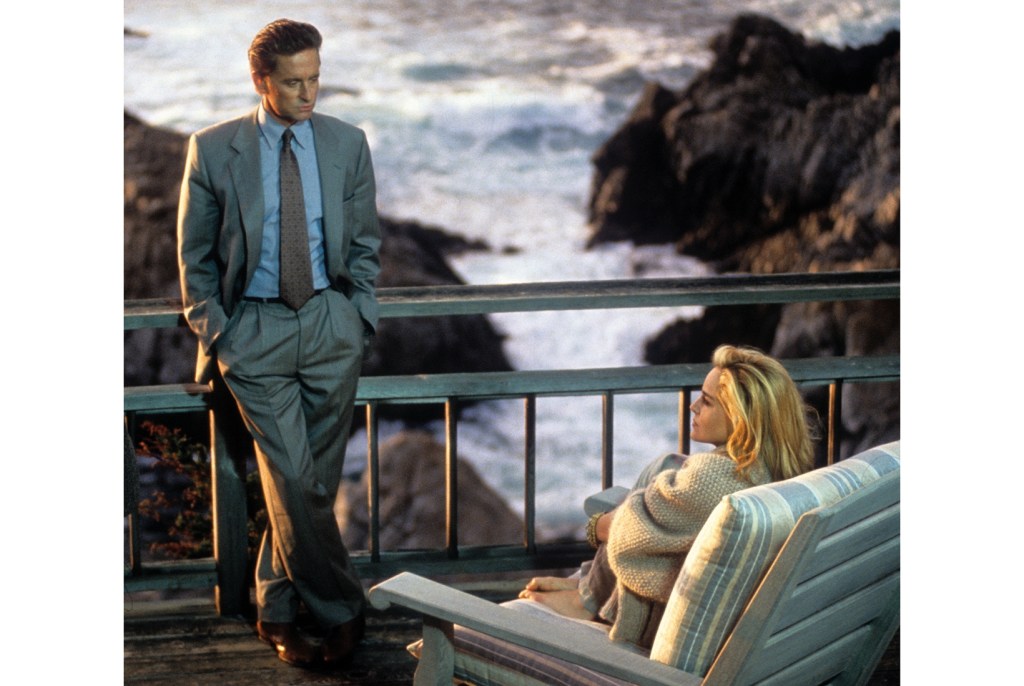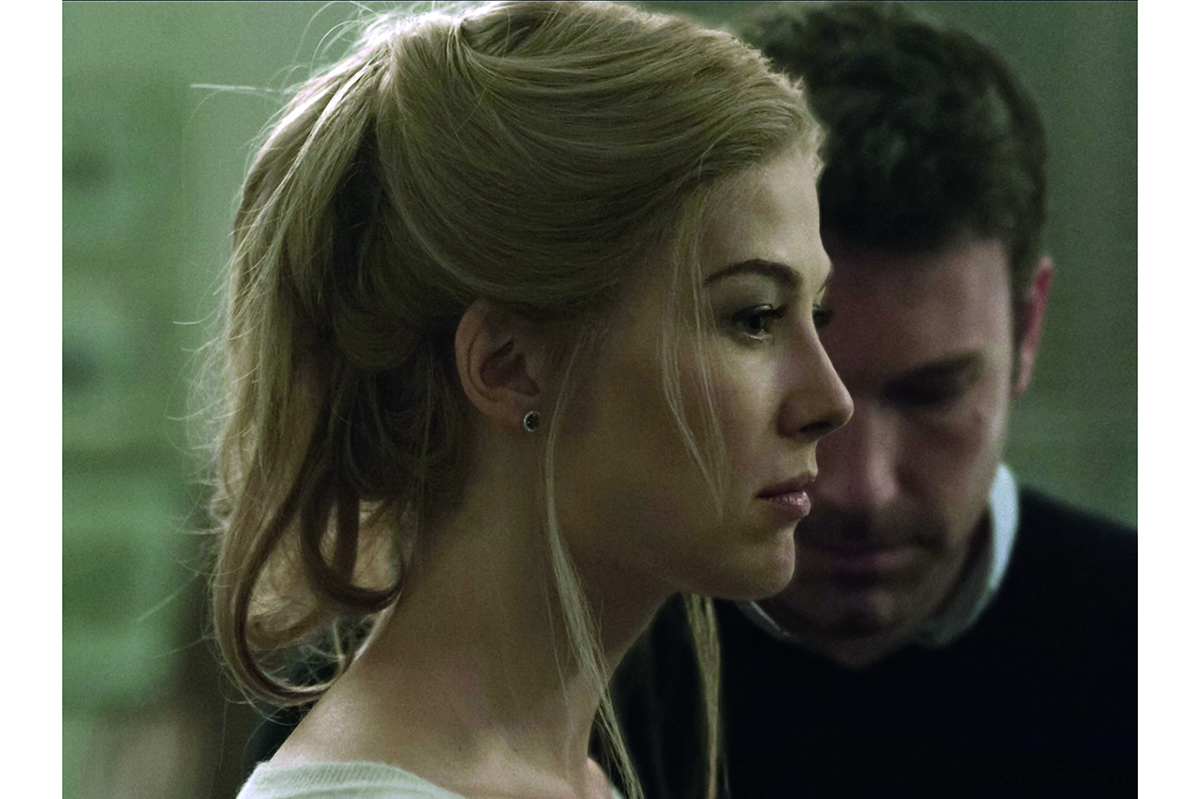Our occasional series on cinema’s most underrated films arrives at what many have considered the peak of misogynistic trash.
We’re in 1980s America, and a bunch of Hollywood execs are puffing on cigars, sipping scotch. ‘You know, I’ve been hearing a lot about these so-called “liberated women”. What do you think they’re like?’ And thus — or so I imagine — the erotic thriller was born.
Everything we’ve learned from the #MeToo accusations, scandalous trials and casting-couch innuendos suggests powerful men might have been shocked to learn that there were women engaging in sexual activity voluntarily — without having to be coerced or forced. Is this why they made so many films that showed liberated women as ultimately mentally unstable (Fatal Attraction, No Way Out), or dangerous (Body Heat, The Last Seduction)? Women who like sex? They must be crazy!
Though there were many terrible erotic thrillers produced in the 1980s and 1990s, one scene has stuck in our collective memory. I’m talking about that bit in Basic Instinct: Sharon Stone in a white dress uncrossing and recrossing her legs, is still referenced, satirized, memed and made into a punchline almost 30 years after its initial 1992 release. It is burnt into our brains, and our first impulse is to laugh to avoid recognizing that we, the audience, are the sweaty, tragic cops interrogating her. We sneer while transfixed, we renounce while intently leaning forward. And we, just like the cops, think we are in the position of power: we were sent to judge Sharon Stone for her transgressions, oblivious that the reverse is true.
Basic Instinct is the story of a series of unsolved murders…you don’t care, you don’t watch these things for the plot. But the reason, I think, this film has retained its power despite being regarded as trash is because it wasn’t just another bitches-be-crazy story. If anything, it’s the men in the film who seem half-deranged, overly emotional, volatile and uncontrolled, wildly arrogant despite being unable to do their jobs as cops without accidentally killing someone.
Every single woman in the film is perfectly sane, despite also being a murderer. The psychiatrist kills her husband, the writer kills her boyfriend, the writer’s girlfriend kills her brothers, the writer’s friend kills her husband and kids. But given how the men behave throughout, these murders start to seem quite reasonable. In every case, the women find themselves trapped in a domestic space with one of these erratic and hysterical men, grabs the nearest symbolic phallus and stabs their way to freedom.
So when Michael Douglas starts pursuing Sharon Stone both romantically and as a suspect in these murders, you know it’s not going to end well. He’s a coke fiend with wild insecurity issues, sexual hang-ups and a closet full of polyester blends. He’s intimidated by her money, her intelligence and her bisexuality, and he overestimates his sexual prowess to a delusional degree. He doesn’t love her so much as want to dominate her so he can stop feeling so bad about himself.
Director Paul Verhoeven is not afraid to show that the world these men have created is kind of pathetic. It’s all fluorescent lighting, sensible sedans and ugly shoes. It’s office coffee drunk out of Styrofoam cups. It’s cheap whiskey on the rocks and warm beer out of a can. Stone’s world is natural lighting, sparkly dresses and good cocaine. It’s sitting on the seashore wrapped in luxurious knits, letting the wind run through your hair, being sad that you had to murder your boyfriend. But Douglas doesn’t want to live in her world, he’s awkward and uncomfortable in it, and he doesn’t like that he can’t be in control. He wants to drag her into his world and trap her there through marriage.
When they’re lying in bed together, he proposes that they settle down, ‘raise rugrats and live happily ever after’. His only vision for how things can be in love and sex is just more of the same, reproducing his own misery for generations to come. Her instinctive response is to reach for an ice pick, and at this point in the film, you’re like, ‘Yes, do it, no judgment.’
The film is clearly channeling cultural anxieties about the power dynamics between men and women at that time, playing on men’s fears about whether women were going to want revenge for centuries of mistreatment. But I’m also not going to discount the cathartic pleasures for a female audience of watching a woman stab her lover to death while he’s still inside her.
If Basic Instinct is about anything, it’s about the impossibility of true liberation for women. There’s always going to be some guy there, getting in the way. A cop, a lover, some bro at the bar. Probably its solution — stabbing — is not fully practical in the real world, as your life would just turn into an endless game of whack-a-mole, trying to eradicate the world of disappointing men with your little ice pick one by one. Best to watch it as fantasy and dream of a better world with better men.
The Beauty of Living Twice by Sharon Stone is out now, published by Allen & Unwin. Paul Verhoeven’s Benedetta is out next year. This article was originally published in The Spectator’s UK magazine. Subscribe to the World edition here.





















